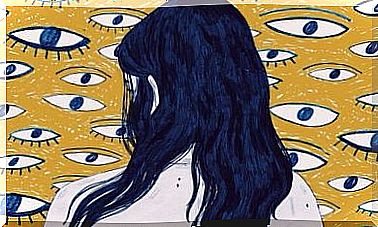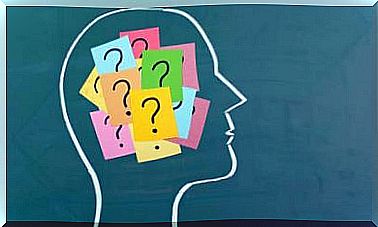Prozac: A Miracle Drug?

Mary has had problems with others most of her adult life. She has fought with her parents, her neighbors, her husband… This 39-year-old woman has experienced depression and bulimia, drug addiction and has attempted suicide twice. A psychiatrist prescribed the antidepressant doxepin, but he did not like how this drug made him feel. A couple of years ago, her psychiatrist suggested that she try a new drug: Prozac. So did Mary.
After a month, Mary had already traded her psychotherapy for school and a full-time job. He also discarded tranquilizers and drugs from the pharmacy. He said he felt “100% better.” “Now, he maintains a good relationship with his parents. She feels that she is appreciated at work and that she does not spend the day thinking about the negatives of things. I no longer experience fits of anger. “My marriage is five times better than it was” (Cowley, 1990a, p.39).
Prozac, the drug that appeared on the cover of a magazine
When the use of a drug produces favorable testimonials by those who have experienced its effects and even appears on the cover of Newsweek magazine, it is necessary that we stop to analyze it in depth. But, ignoring the reaction of the media, is it as revolutionary as those who defend it claim?
In some respects, it appears that Prozac does deserve the accolades that have been lavished on it. Introduced in 1987, it is currently the most commonly prescribed antidepressant drug. Although it is very expensive, the truth is that it seems to have managed to change the lives of thousands of depressed people. However, although the Prozac patent expired in 2001 in the US and in 1999 in Spain, there is still debate about its therapeutic relevance.

There was a time when depression was mostly treated by psychiatrists, who prescribed the so-called tricyclic antidepressants (amitriptyline, clomipramine) for treatment. The side effects of these drugs were as unpleasant as they were unknown in many cases, hence many patients and doctors abused them without really measuring the consequences of high and recurrent use.
With the emergence of Prozac, which was nearly as effective as existing drugs, but apparently with fewer side effects, primary care physicians began to prescribe it. Thus, this fear of using antidepressants decreased in some way , despite the fact that, at first, the professionals were not in favor of prescribing it.
What is Prozac?
Prozac is the brand name for an antidepressant: fluoxetine. Prozac works by blocking serotonin reuptake. It is a selective serotonin reuptake inhibitor or SSRI. Unlike other antidepressant drugs, Prozac appears to have few side effects and the likelihood of an overdose is very remote. Thus, we find that many people who have not responded to other types of antidepressant drugs do respond to Prozac.
On the other hand, to note that Prozac may have its dark side. In fact, some of the people who use Prozac experience intense shaking and tremors. Other people develop suicidal ideation. Finally, other patients argue that Prozac makes them prone to violent attacks. In fact, defense attorneys in various homicide lawsuits have used it as a defense. They claim that it was the drug that caused the homicidal behavior (Marcus, 1991).
Unfounded fears?
Many trained professionals do not accept the conclusions of these reports. Even a group of experts from the United States government, gathered at the request of the Food and Drug Administration, did not find any evidence to demonstrate the side effects of Prozac (FDA, 1991). However, some experts suggest that up to 15% of consumers have some type of side effect. Unfortunately, public enthusiasm for Prozac poses a problem for healthcare workers.
The large amount of publicity about the drug increases the possibility that patients experiencing episodes of sadness or discouragement will not consider taking more appropriate alternative measures. One of these alternative treatments with proven clinical efficacy is psychotherapy.

Although Prozac can make us feel better, the truth is that we can pay the price of improving our mood beyond the pharmacy, in our own body and on our own health. As with the common cold, no “magic” cure for depression is yet to be seen in the immediate future.
Questioned efficacy
Prozac, the antidepressant consecrated as a symbol of the 21st century with 40 million consumers worldwide, is seriously questioned. According to the results of a meta-analysis published by PLoS Medicine, fluoxetine, the active substance in the so-called “happiness pill”, has the same effect as taking pills made with sugar.
This is the same as saying that Prozac is a placebo (when it comes to people with mild and moderate depression). The same would happen with the other two best-selling antidepressants, venlafaxine (Efexor) and paroxetine (Serotax). The study concludes that they would only have the effects that are demanded of them when the depression is very deep.
So are we looking at an effective antidepressant drug or is it just a placebo? Let’s not forget that there are millions of people who say that it has helped them. According to Spiegel, 1989 “although antidepressant drugs produce side effects, their overall margin of success is very good.” In one way or another, before taking a step towards medication or drug consumption, it is best to go to the consultation of a specialist who is in a position to offer us different alternatives, because as we say, there is no magic cure for depression .
Prozac: a knot to untie
Although Prozac may have beneficial effects on depression or be a placebo, the debate may go further. Are antidepressants really effective? As seen in previous lines, numerous testimonials have been reported from people who claim to be happier. But is it a true happiness? Or is it rather a small state of euphoria maintained over time?
It is important to analyze what are the causes of depression. Generally speaking, when we are depressed, we tend to have a dark and sad view of life. External circumstances have overwhelmed us and we have not been able to handle them. So little by little they have been sinking us and reducing our mood. It can also be caused by a specific event such as the death of a loved one.
If depression comes from poor coping with life or trauma, how can an antidepressant help? If we have a “knot” in the brain, the best way to get rid of it is by learning to undo knots. In the same way, the best way to solve our problems is to learn to manage them. It is time to reflect on it!









